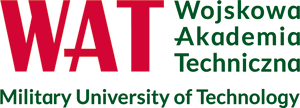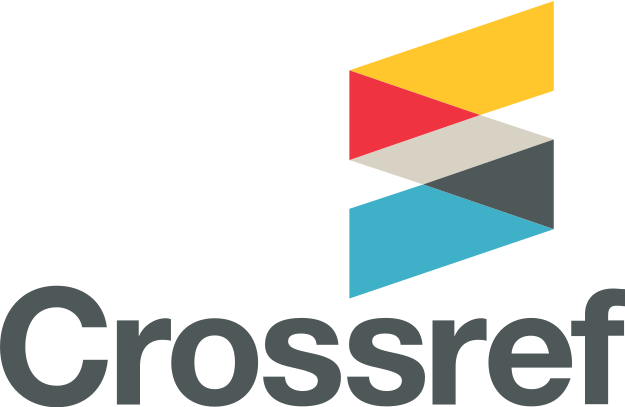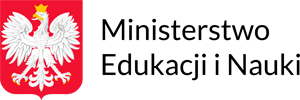Ethical standards
Articles submitted and published in "National Security Studies" are verified in terms of compliance with the principles of publishing ethics and scientific reliability.
The basic criterion for evaluating articles is their substantive value. Political views and religion, as well as origin, gender or race are not taken into account when evaluating the article.
One of the criteria for the substantive evaluation of the submitted articles is originality and contribution to science. The editors also reserve the right to assess the author's contribution to the preparation of the article, including the appropriation of the results of other people's research, plagiarism, self-plagiarism or untrue attribution of authorship, as well as unreliable bibliographic notation.
Therefore, only original texts may be submitted for publication in the journal.
Each author should beware of omissions or omissions that could conceal the use of elements of someone else's work or the results of someone else's research, or mislead as to the scope of his own creative work. A co-author is considered to be anyone who had a creative contribution to the article, especially regarding its content, structure and presented research results.
Authors are required to submit a statement specifying the contribution of the work.
The authors are fully responsible for the published content. Research results and their interpretations should be presented in a reliable, specific and operative way so that their verification is possible.
Each author should disclose potential conflicts of interest. It is the author's responsibility to submit a statement regarding the substantive and financial contribution to the preparation of the article.
Editors counteract such phenomena as Ghostwriting and Guest Authorship and equates them with a manifestation of scientific misconduct. If such practices are detected, the Editorial Office undertakes to notify the relevant entities about the author's actions. Therefore, the editors reserve the right to provide information about the sources of financing the publication, as well as the contribution of scientific and research institutions, associations and other entities.
In the event of unethical conduct being revealed, such as plagiarism, data falsification or re-publication of a previously published article or part thereof, the Editorial Office will contact the author with a request for explanation and then take appropriate steps, as provided for in the guidelines COPE (Committee on Publication Ethics).
The editors do not disclose information about the publications submitted for publication to unauthorized persons. Authorized persons include: the authors themselves, appointed reviewers, editors and persons involved in the publishing process.
The Editors' decisions regarding the rejection of articles resulting from the failure to meet editorial and substantive requirements, negative reviews and/or the inconsistency of the article's content with the journal's profile are final and are not subject to the appeal procedure. Complaints regarding violations of copyright and ethical standards are considered, in particular regarding ghostwriting and improper citation of the achievements of other scientists. Complaints in these matters should be reported to the Journal's Editors using the contact details provided on the journal's website. Complaints will be considered by the Editorial Board.
The basic criterion for evaluating articles is their substantive value. Political views and religion, as well as origin, gender or race are not taken into account when evaluating the article.
ORIGINAL ARTICLES AND PROTECTION OF INTELLECTUAL PROPERTY
One of the criteria for the substantive evaluation of the submitted articles is originality and contribution to science. The editors also reserve the right to assess the author's contribution to the preparation of the article, including the appropriation of the results of other people's research, plagiarism, self-plagiarism or untrue attribution of authorship, as well as unreliable bibliographic notation.
Therefore, only original texts may be submitted for publication in the journal.
Each author should beware of omissions or omissions that could conceal the use of elements of someone else's work or the results of someone else's research, or mislead as to the scope of his own creative work. A co-author is considered to be anyone who had a creative contribution to the article, especially regarding its content, structure and presented research results.
Authors are required to submit a statement specifying the contribution of the work.
SCIENTIFIC INTEGRITY
The authors are fully responsible for the published content. Research results and their interpretations should be presented in a reliable, specific and operative way so that their verification is possible.
Each author should disclose potential conflicts of interest. It is the author's responsibility to submit a statement regarding the substantive and financial contribution to the preparation of the article.
Editors counteract such phenomena as Ghostwriting and Guest Authorship and equates them with a manifestation of scientific misconduct. If such practices are detected, the Editorial Office undertakes to notify the relevant entities about the author's actions. Therefore, the editors reserve the right to provide information about the sources of financing the publication, as well as the contribution of scientific and research institutions, associations and other entities.
In the event of unethical conduct being revealed, such as plagiarism, data falsification or re-publication of a previously published article or part thereof, the Editorial Office will contact the author with a request for explanation and then take appropriate steps, as provided for in the guidelines COPE (Committee on Publication Ethics).
CONFIDENTIALITY
The editors do not disclose information about the publications submitted for publication to unauthorized persons. Authorized persons include: the authors themselves, appointed reviewers, editors and persons involved in the publishing process.
METHOD OF HANDLING COMPLAINTS AND APPEALS
The Editors' decisions regarding the rejection of articles resulting from the failure to meet editorial and substantive requirements, negative reviews and/or the inconsistency of the article's content with the journal's profile are final and are not subject to the appeal procedure. Complaints regarding violations of copyright and ethical standards are considered, in particular regarding ghostwriting and improper citation of the achievements of other scientists. Complaints in these matters should be reported to the Journal's Editors using the contact details provided on the journal's website. Complaints will be considered by the Editorial Board.
We process personal data collected when visiting the website. The function of obtaining information about users and their behavior is carried out by voluntarily entered information in forms and saving cookies in end devices. Data, including cookies, are used to provide services, improve the user experience and to analyze the traffic in accordance with the Privacy policy. Data are also collected and processed by Google Analytics tool (more).
You can change cookies settings in your browser. Restricted use of cookies in the browser configuration may affect some functionalities of the website.
You can change cookies settings in your browser. Restricted use of cookies in the browser configuration may affect some functionalities of the website.








